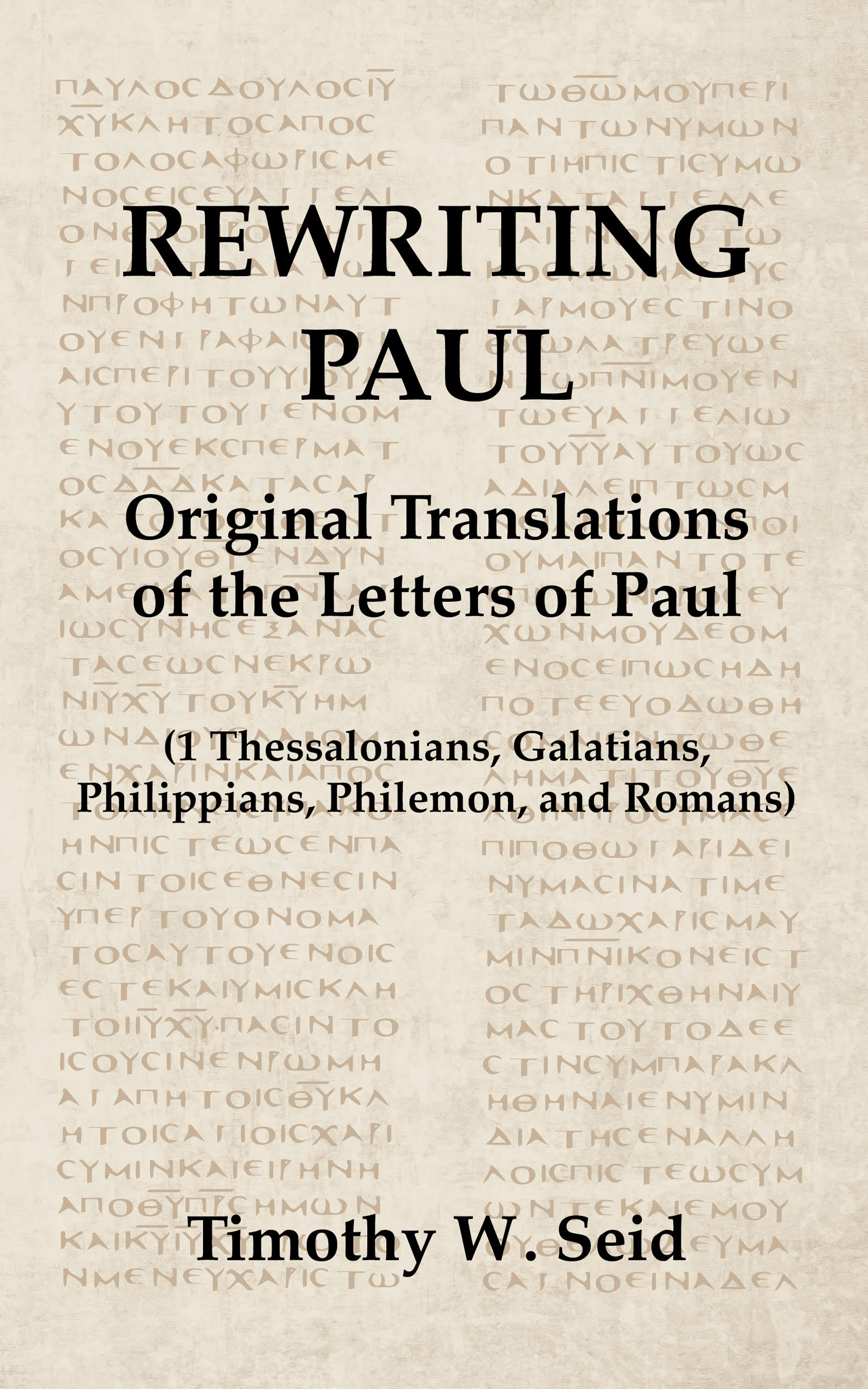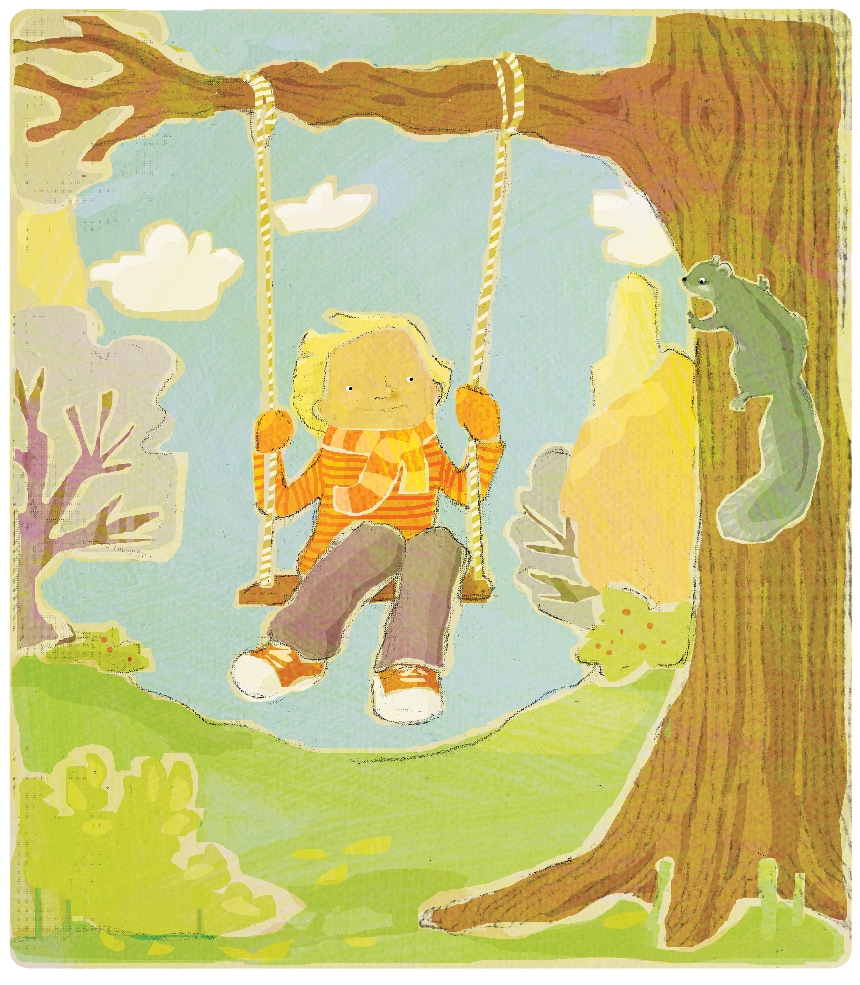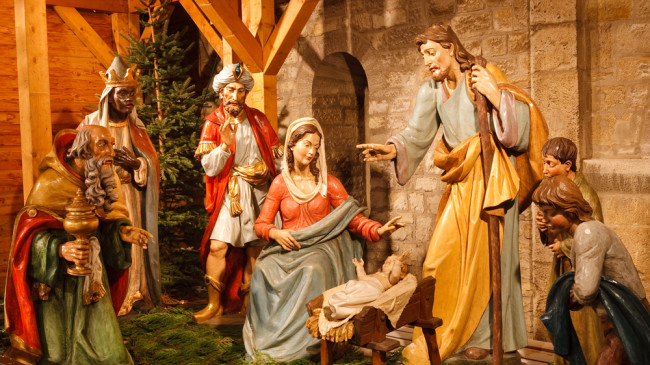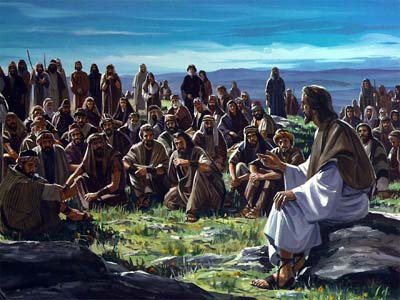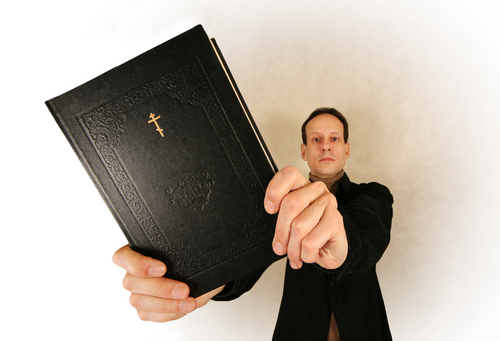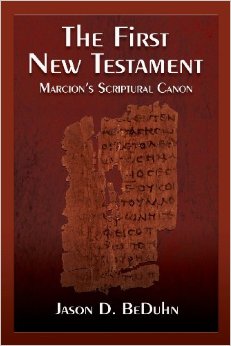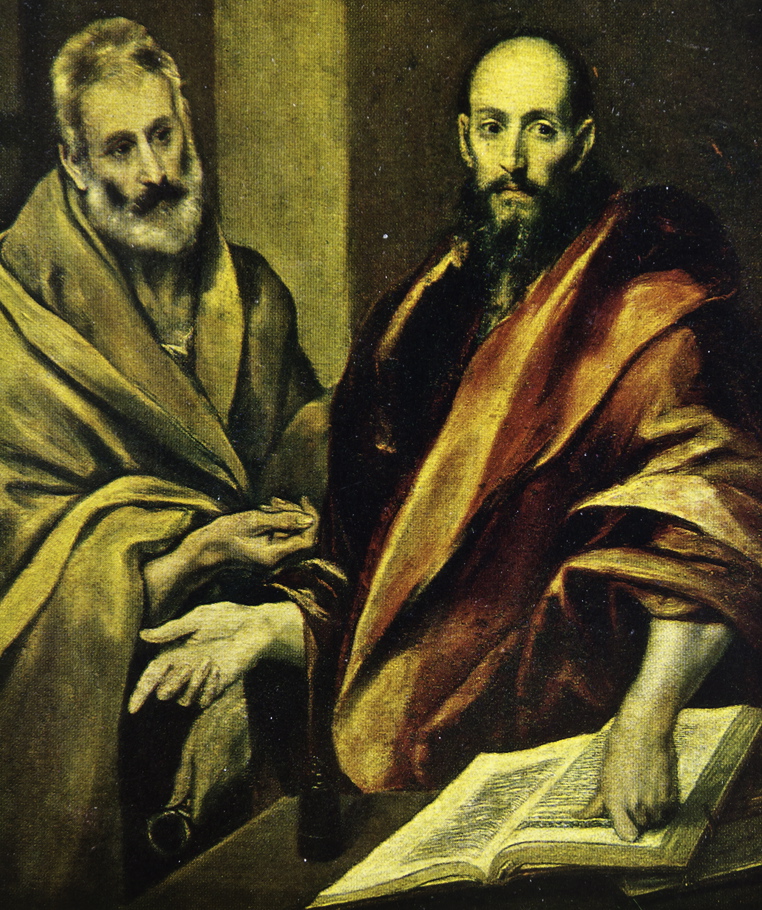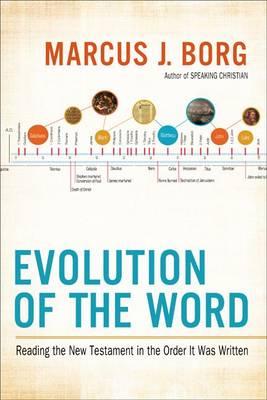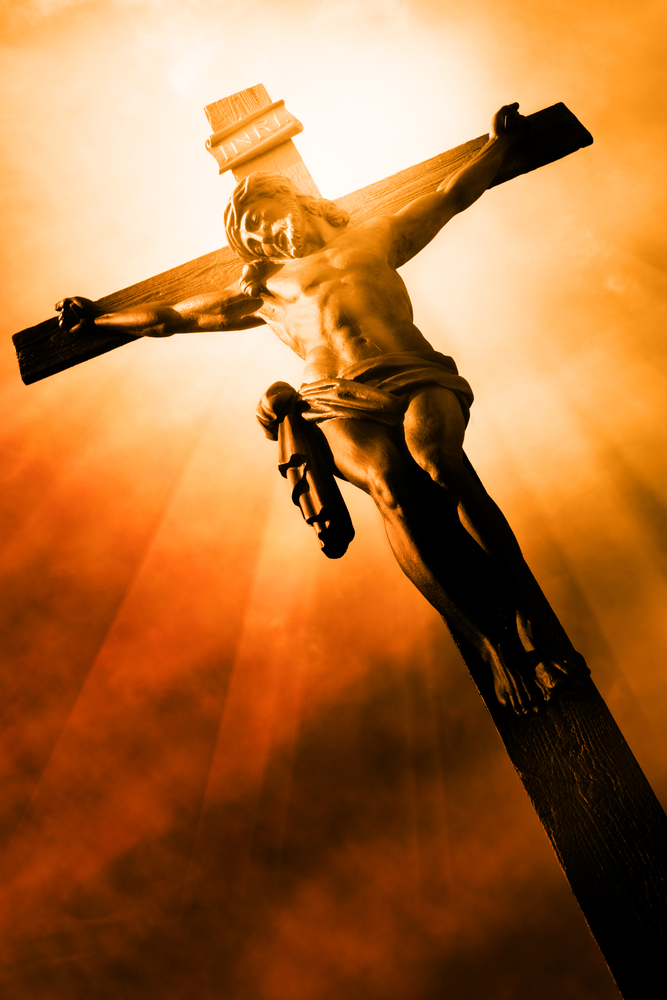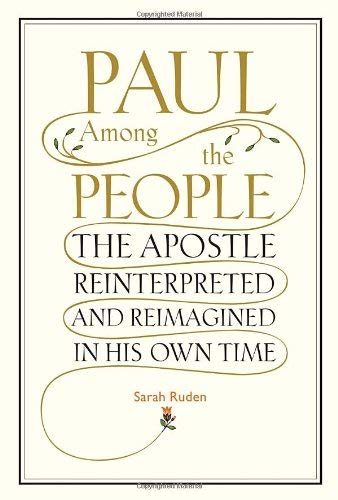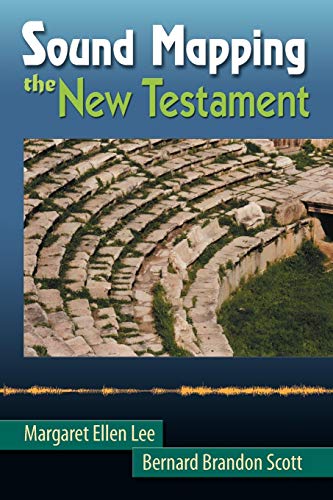The Second Coming of Christ is an erroneous idea that developed among Christians in the last third of the first century AD. It weakened the assurance that the first Christians had that the kingdom of God had come.
Many people are confused, angry, and worried about the future — while others feel their longest hoped-for political dreams have become reality. The air is full of tension, even on these sunny summer days, and it seems as if the nation has somehow cracked open.
How did we get here? All over the world people are marching in the streets proclaiming, “Black lives matter.” Millions have defied the fear of the corona virus, and taken their lives into their hands to venture out into the streets to protest the systemic racism that permeates institutions all over this planet.
I feel like we are being strangled, the life choked from us – disbelief, sorrow, fear, rage. Violence in the streets, jails, and cages at our border, targeting black and brown men, women, and children; a virus stalking us all, turning familiar comforts into threats.
(1 Thessalonians, Galatians, Philippians, Philemon, and Romans)
Popular translations of the Bible are too generic for anyone to reach a definitive interpretation and often perpetuate old concepts. Tim Seid takes a bold approach to Christian origins and offers fresh translations of the earliest of the New Testament authors.
When we put our highest selves in charge, our inner joy and understanding grows. Children can learn to feel for the right direction within and to recognize that every impulse is not the right one simply because it is there. Every time we remember to put our highest self in charge, the more inner joy and freedom we experience.
The slow-moving currents in the ocean depths move in a rhythm untouched by the ever-changing surface of the sea. As we tune into patience and learn to feel a deeper rhythm, we discover that the eternal currents of the cosmic ocean of energy also flow unchanging, despite the storms that blow in material realities.
We know true joy when we experience the reality of God’s presence within. The word joy is used at Christmastime so often that it is almost synonymous with the season. When we have an inner awareness of the presence of God, we experience joy. When we celebrate the birth of Christ, we celebrate that living presence born on earth. Joyful day! God’s presence can be experienced in every moment of our lives when we become aware that the reality of God never changes; it is not dependent on circumstance or season.
From the Celebrating Mystery collection
Our senses and our use of them are part of God's creation. To attempt to deny our senses is as much an insult to God as is the misuse of them.
As Christians we are called to love one another above all else, but what happens when we unwittingly bring in elements that illicit feelings of exclusion, rather than loving inclusion, among those at our worship services? Monette Chilson explores two practices with the potential to ostracize and calls us to reexamine them.
What can we learn from the Christmas story? I believe that just as Jesus seemed to be aware of the Divine Spark (or Christ) presence within him, which allowed him to love almost unreservedly and break boundaries, so too we are invited to see this Divine Spark within ourselves. God is literally with us. And isn't this what we need in today's world, where we see atrocities and tragedies such as the ones I listed above? If each of us were to acknowledge our inner divinity, and then recognize our neighbour's inner divinity - regardless of their religious beliefs or non-beliefs - would we then see larger stepping stones toward global peace?
The church as we know it came about when one group of believers was opposed by a dissenting group. Then it became necessary for each group to define their concepts of Christianity and to label all others heretics.
The Greek word for “faith” in the New Testament is pistis, which occurs 243 times. As a noun, pistis is used as a technical term for “forensic evidence.” In other words, faith is not blind; we must investigate to establish the facts. I agree with retired Episcopal bishop, John Shelby Spong, who writes, “My problem has never been my faith. It has always been the literal way that human beings have chosen to articulate that faith.” To many Christians, faith means believing highly suspect claims, which is a problem for me. Thinking isn’t a sin. God created our minds and I’m certain that we were intended to use them.
Distributive justice-compassion, or “restorative” justice, argues that the rain falls on the just and the unjust, and that while the back-story may be compelling or repelling, violence is never the solution. When society’s protective systems “codify right from wrong, separating the holy from the profane,” who will call attention to the injustice that gets embedded in those very codes whose purpose is to protect and defend the safety and security of that society?
I think Christian missionaries should live among the people exhibiting their Christianity in their daily lives. If the people see something in their lives that is missing in their own lives they will ask about it, which gives the missionary permission to tell them about their faith.
For Christians grace is God’s gift of pardon. According to William Barclay the Greek word for grace was originally a military term. When an emperor came to the throne or celebrated a birthday, he would give his troops a donatirim (donation), which was a free gift that they had not earned; it was given out of the goodness of the emperor’s heart. This idea was picked up by the Christian scripture writers when they wrote about the grace of God. Grace is something that is unearned and undeserved – unmerited pardon.
Can we actually believe that because Eve persuaded Adam to eat a forbidden apple the entire human race is doomed to hell? Can we truly believe that for several thousand years there was no chance for any human to be saved, even though none of them had anything to do with Adam and Eve’s disobedience in the Garden? Isn’t it ludicrous that a child born today is doomed because Adam and Eve disobeyed God? That creation/damnation scheme sounds more like devil-worship than God-worship.
Easter calls attention to the traditional, fundamental “beliefs” associated with the Christian religion – if only for a day. The secular world pays little attention to the nuances of Christian “faith” in a post-Christian world. Easter is a liturgical season that lasts for seven weeks. In Christian tradition, the time between the resurrection of Jesus and his “ascension” into the sky (Pentecost) replaces the time between the Jewish Feast of the Passover and the giving of the law to Moses on Mt. Sinai. Not only do most Christians concentrate on the resurrection story – often literally. Editorial writers for supposedly sophisticated secular media seem to feel obligated to attempt to find meaning in the traditional religious legend of a dead man walking out of his tomb. But “faith” does not mean “belief.” “Faith” means “trust.” “Faith” further means “confidence.”
The earliest version of the New Testament, now in English for the first time! History preserves the name of the person responsible for the first New Testament, the circumstances surrounding his work, and even the date he decided to build a textual foundation for his fledgling Christian community. So why do so few people know about him? Jason BeDuhn introduces Marcion, reconstructs his text, and explores his impact on the study of Luke-Acts, the two-source theory, and the Q hypothesis.
The sermon is based on a performance of the lectionary reading from Galatians and other central texts that tell the story of Paul in his own words: Galatians 1:1-17; 2Corinthians 12:1-12; and 1Cornthians 15:1-11 with short quotes from other letters as well. As this Early Christian practice was supposed to be unscripted and is mostly based on Paul's own words, there is no written version of the sermon on the website. You are invited to watch the video recording of the performance.
The New Testament in the Order the Books Were Written
the full-text of the New Testament—and one of the only Bibles organized in chronological order and including explanatory annotations that give readers a more informed understanding of the Scripture
I've titled this as about the Resurrection, which is just one part of a complex of beliefs... but let's return and end there... What similarities or differences do you see in Paul's Resurrection statements and beliefs and those of the early Jerusalem Jesus-followers?
Paul insists, "It is for freedom that Christ has set us free." Yes, freedom. Paul was the Apostle of human freedom.
In her latest update, Sea Raven reinforces the notion that the Gospels must be read through the lens of the genuine Pauline letters.
In Paul Among the People, Sarah Ruden explores the meanings of his words and shows how they might have affected readers in his own time and culture. She describes as well how his writings represented the new church as an alternative to old ways of thinking, feeling, and living.
The possibility that Jesus’s message was one of radical fairness, and that following Jesus means creating and living in a world based on non-violent covenant instead of desperate selfishness, has certainly been hidden from view since before Luke decided to tell the story. It’s time to give the presidents and prime ministers of today the chance to see and hear the alternatives to imperial, retributive, business-as-usual. It’s time to offer viable alternatives to the feel-good, prosperity-based, exclusive, self-righteousness that passes for evangelism on the right. As liberal pundit Keith Olbermann has suggested, it’s time for some non-violent democratic action.
In the Hellenistic world, writings were read aloud, heard and remembered. But modern exegesis assumes a silent text. The disjuncture between ancient...





